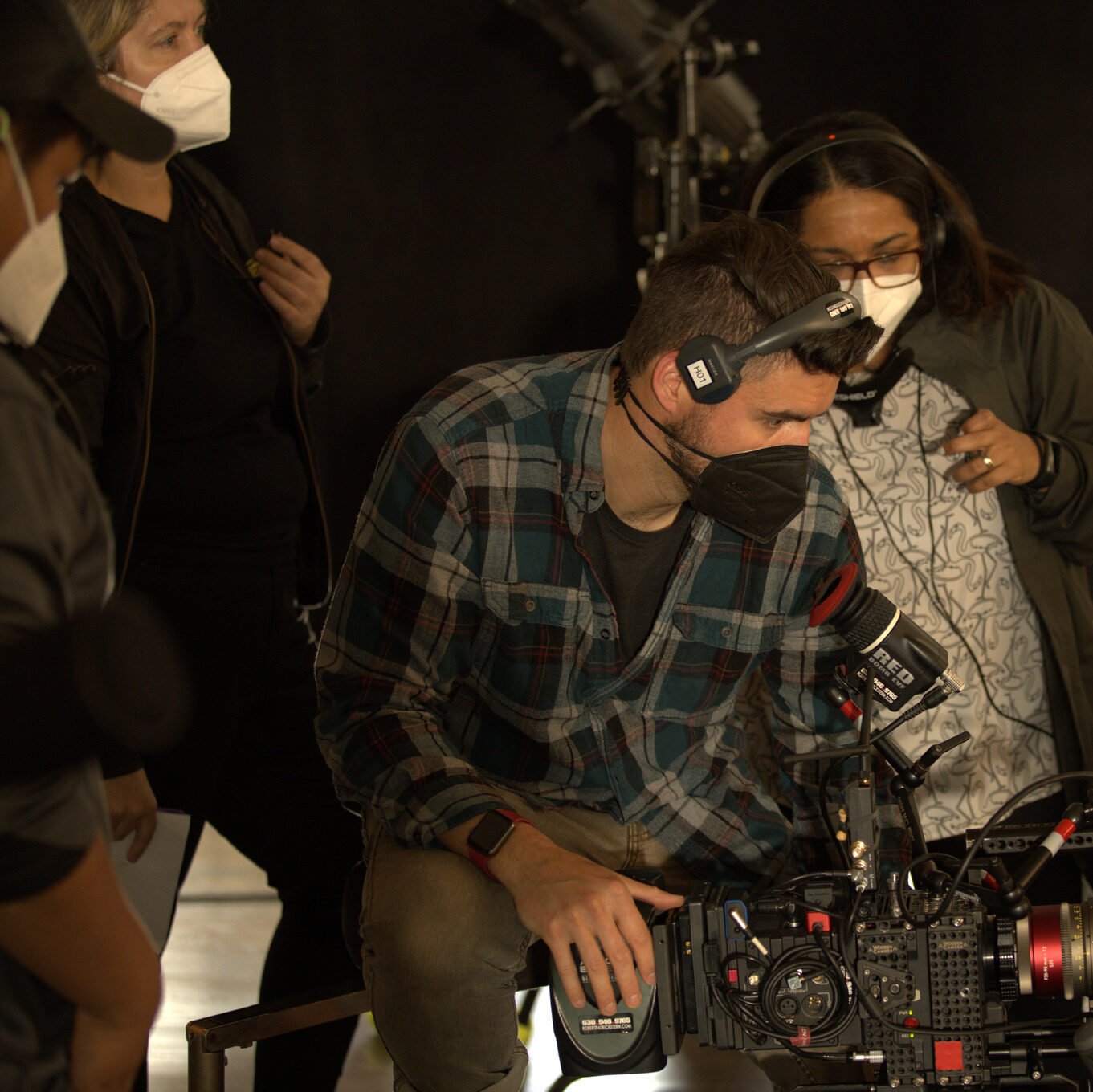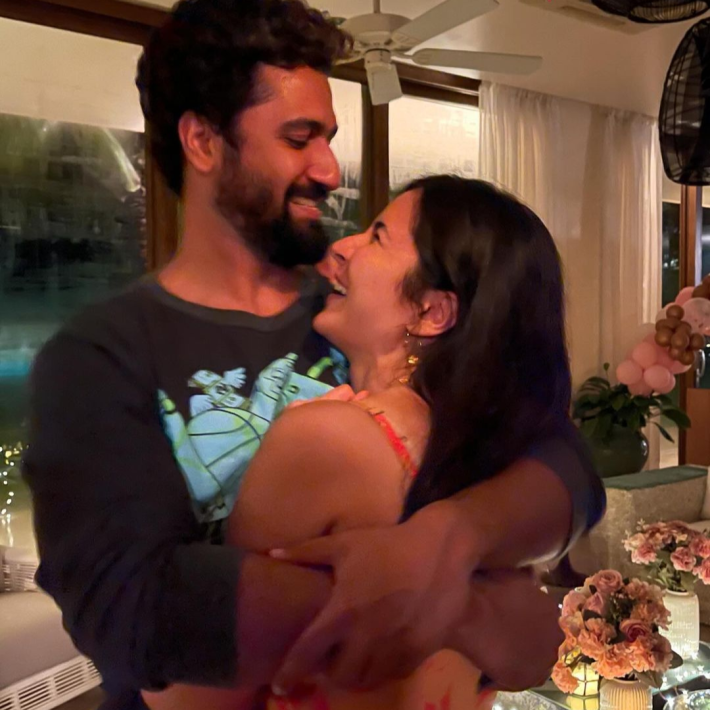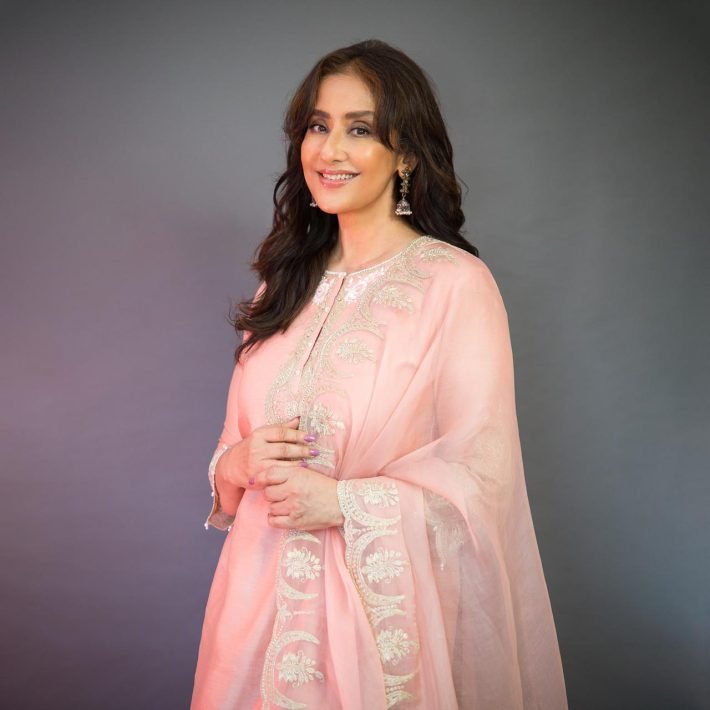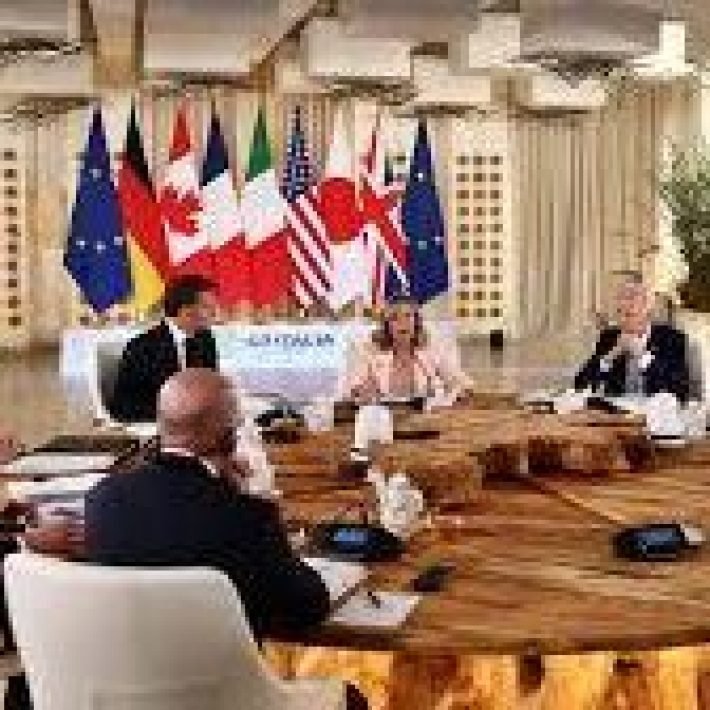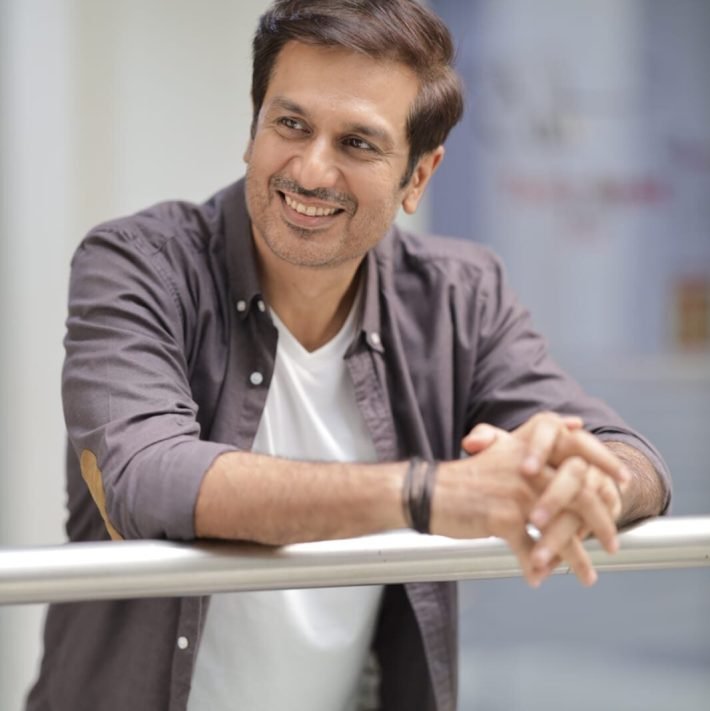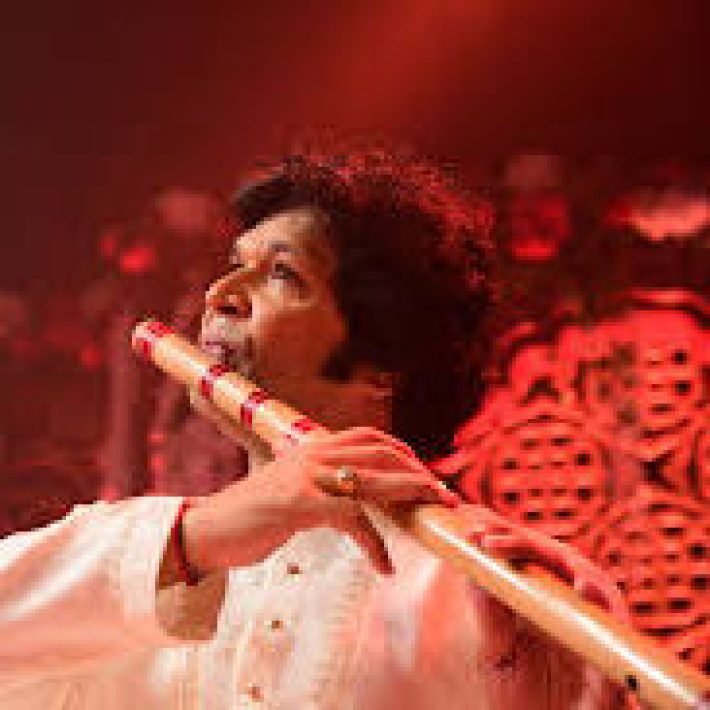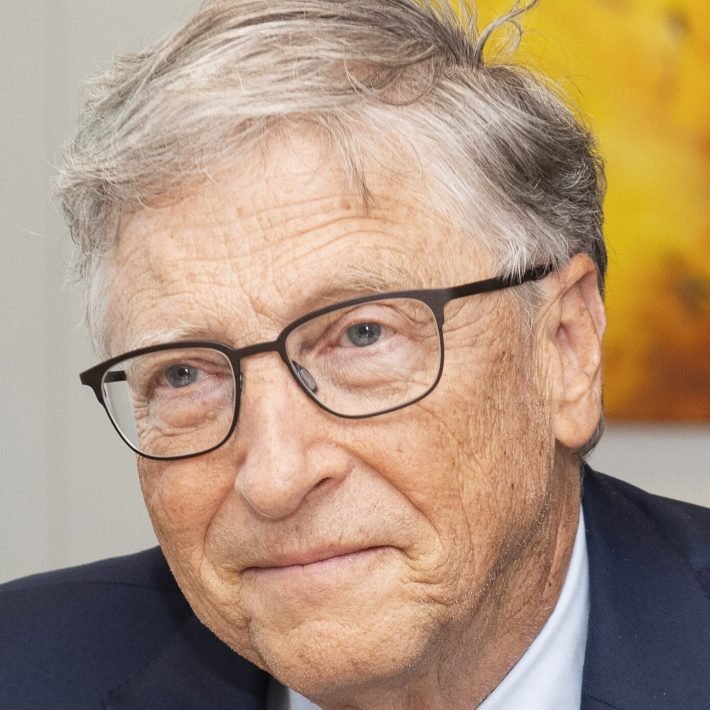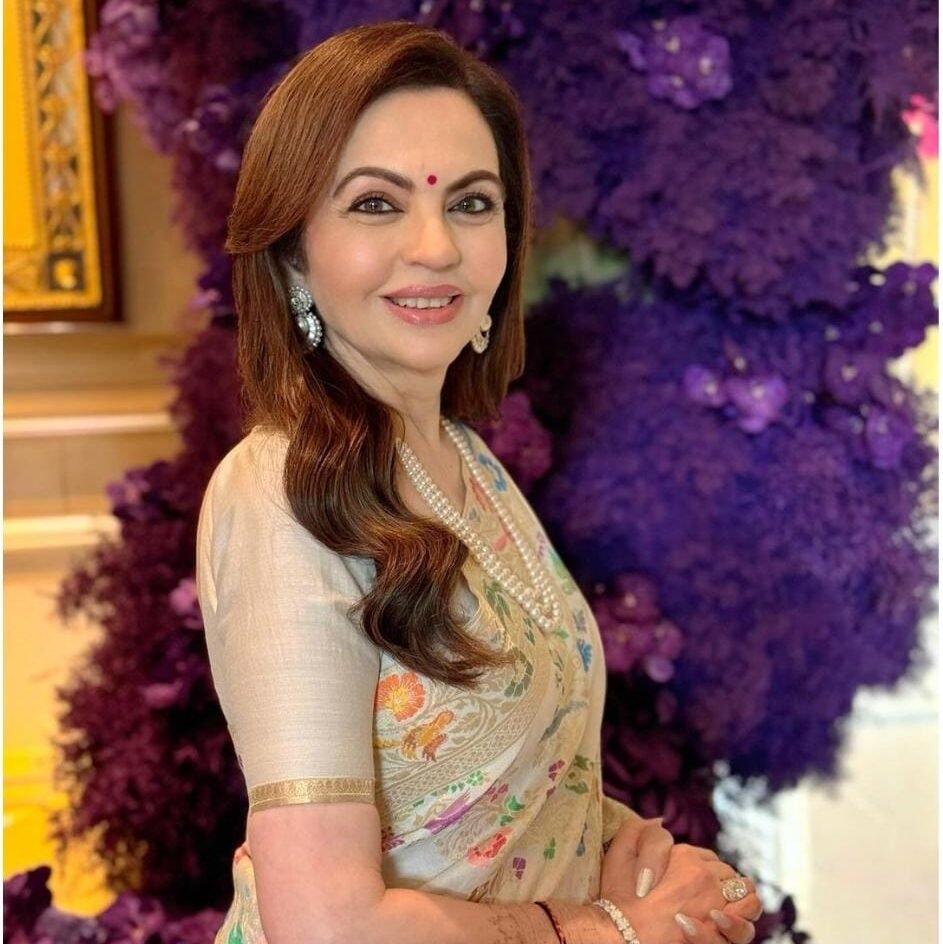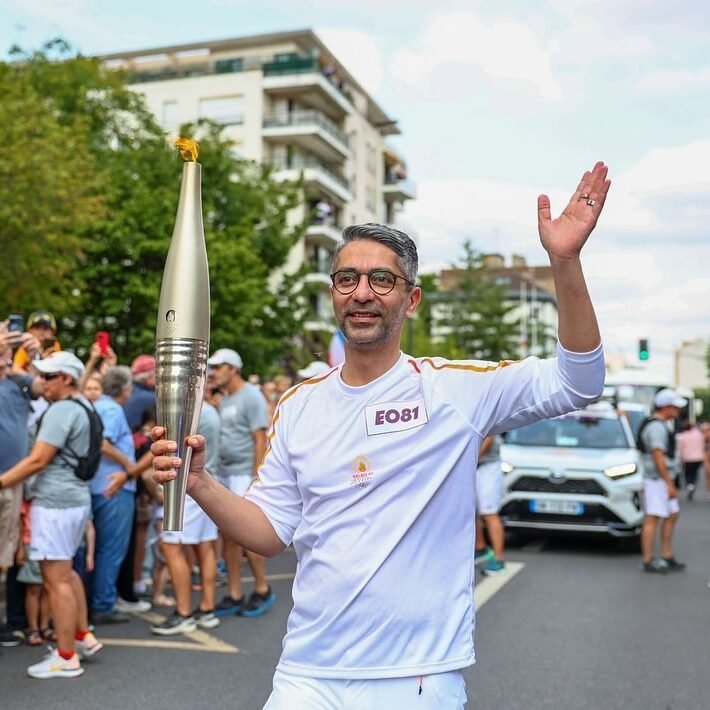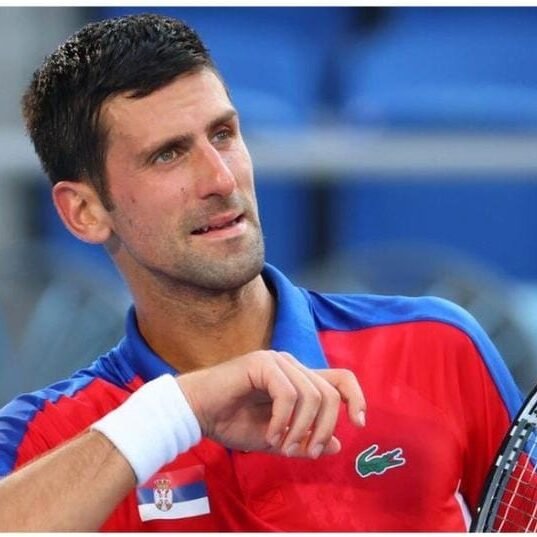Director Prarthana Mohan spills the beans on life, love and films as she calls the shots in Hollywood.
By CSS Latha
Making a foray into Tiseltown is a big deal. While even some of Bollywood’s brightest secretly nurture dreams that Hollywood will beckon someday, Prarthana Mohan, hailing from an affluent business family from Chennai, quietly made her inroads as a director in Hollywood.
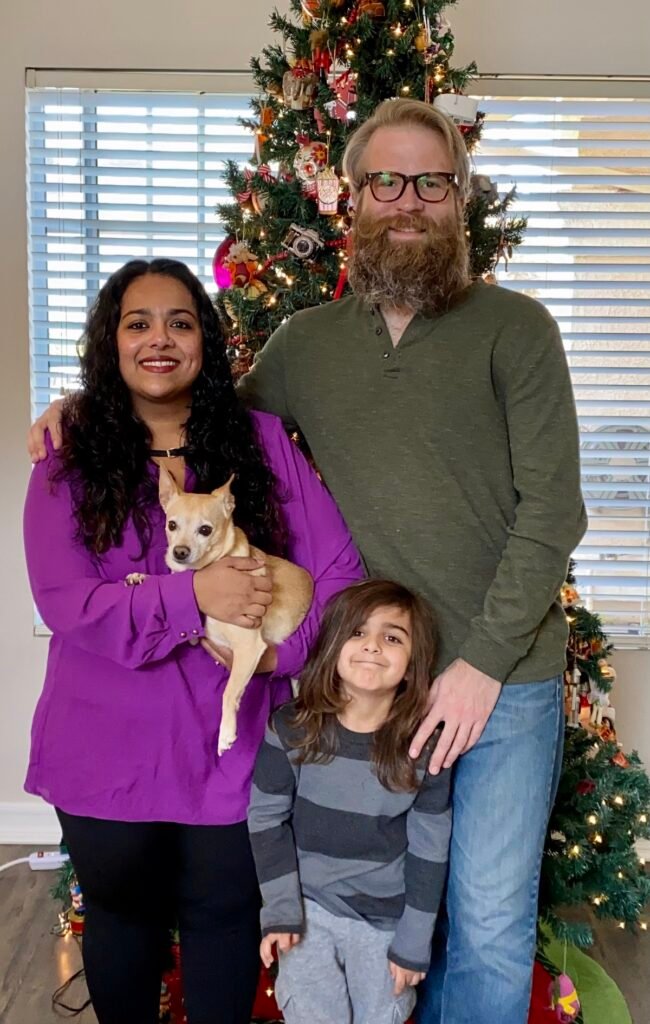
Prarthana’s debut film ‘The MisEducation of Bindu’ has been critically acclaimed for the offbeat subject it portrays. She left her mark as a filmmaker with substance wih her second film ‘Christmas is Cancelled’ which was released on Amazon Prime Video, followed by ‘Fighting for Her Family’. Her mother Latha Mohan reveals that Prarthana has a couple of outstanding scripts ready to be made in India with an Indian star cast as well.

A peek into her lineage could reaffirm that DNA matters. Her legendary maternal grandfather, music director M. S. Viswanathan, was a monarch of Kollywood film music. In what was called the Golden Era of MGR, Sivaji Ganesan and Gemini Ganesan, MSV ruled the roost; scoring chartbusters for 700 films. The legendary actor-politician MG Ramachandran’s election campaigns were driven by MSV’s all-time hits. Jayalalithaa, who succeeded MGR, conferred the ‘Thirai Isai Chakravarthy’ (Emperor of Cine Music) title on him.
Needless to say, being MSV’s granddaughter is a privilege for Prarthana, but surprisingly she never made use of her film connections. Instead, she surprised everyone by finding her path as a director in Hollywood. In a short span, Prarthana has directed four Hollywood projects and is working on other scripts.
We caught up with her for a little tête-à-tête and found out a little more about her journey as a filmmaker…

You hail from a celebrated family with successful business stalwarts like your mother Latha Mohan and brother Vikram, what inspired your adventure to the US?
I was interested in cinema and storytelling from a young age. Even when I was little, I would watch movies, reenact every scene, and play all the parts. I was lucky enough to be M. S. Viswanathan’s granddaughter; I had the opportunity to see the impact cinema has on people’s lives up close. My grandfather’s influence was palpable when he would meet his fans. Art has that transformative power – I certainly did all I could to immerse myself in it. Nonetheless, it was not easy to make the decision to be part of the industry. There are a lot of risks involved, and my parents were very nervous but always supportive. After I completed my undergrad in Chennai and worked in the family business for five years, I could not ignore the need to take a risk and go study film. I applied to Chapman University in the US and decided to embark on this journey.
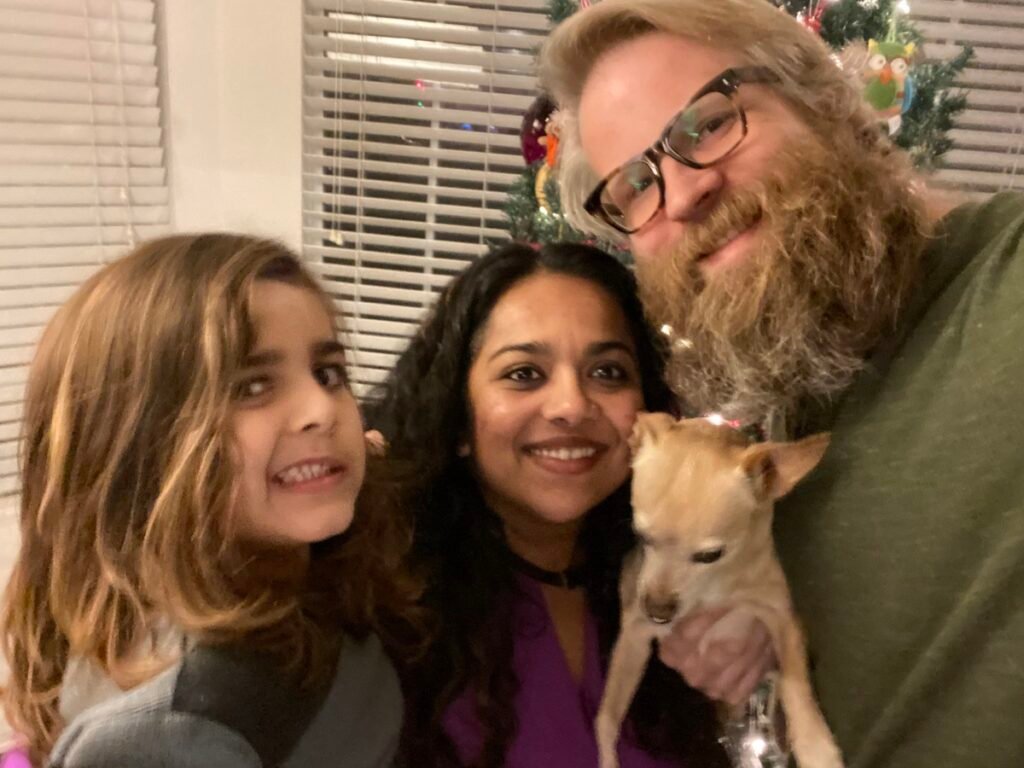
Tell us about your early years in America.
My early years in America were both scary and exhilarating. I loved that I was able to finally do what I always wanted – to be immersed in cinema and work alongside people who were just as obsessed with it as I am. It was scary because I did not have the safety net of my family or my grandfather’s legacy to help open any doors. I was on my own.
Your grandfather was a Kollywood legend, wasn’t this enough for Kollywood to give you a royal welcome? What made you opt for a career in Hollywood?
I have often wondered why I took the harder path. Now that I am older and have the wisdom of looking back, I definitely made it unnecessarily harder on myself.
However, in spite of the challenges, I think I would do it the same way if I were starting over. Going away to school and studying film for three years taught me the discipline that filmmaking needs. Being away from family gave me purpose, something to work towards. Sometimes not having things easy helps you work harder. In the film industry, you have to pay your dues and learn from the ground up.
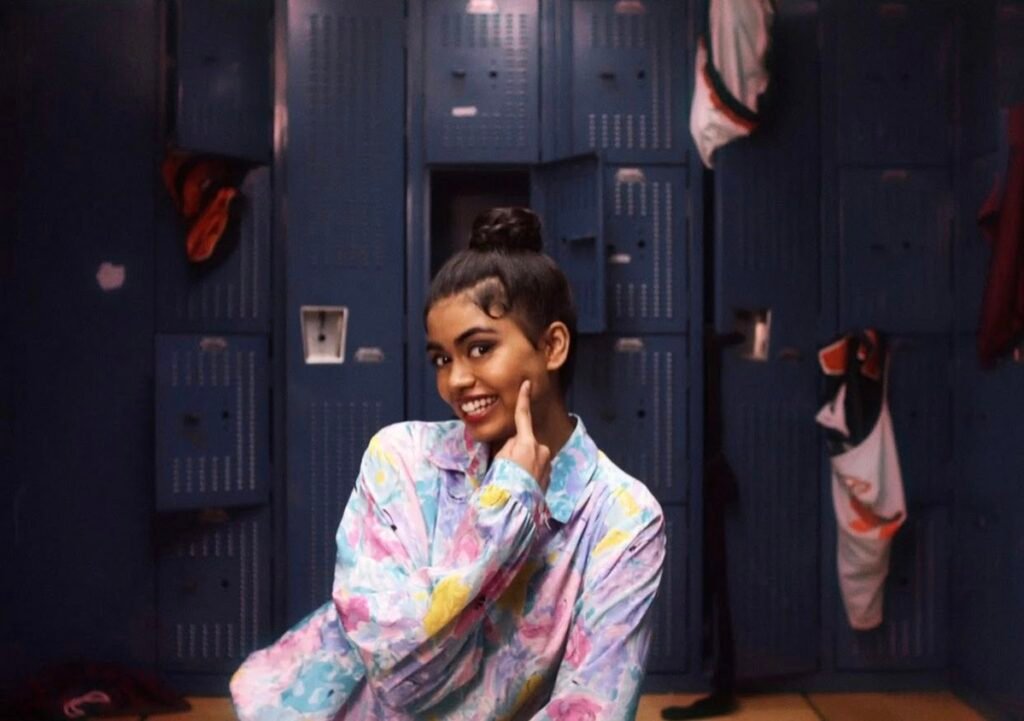
I am not sure I would have had the opportunity to do that if I had been back home. I got to do it on my own terms – hard or otherwise. I only wish my Thatha (grandpa) was alive so I could have shared some of my successes with him. He did see some of my early short films, so at least I have those memories to cherish.
How did your first film happen? What kind of preparation did you need?
I made my first feature film in 2018. To give you an idea of how hard it was and how long it took – I graduated with an MFA in Film in 2009. During the time between my graduation and making my first film, I had a full-time job to pay the bills, got married, and even had a son.
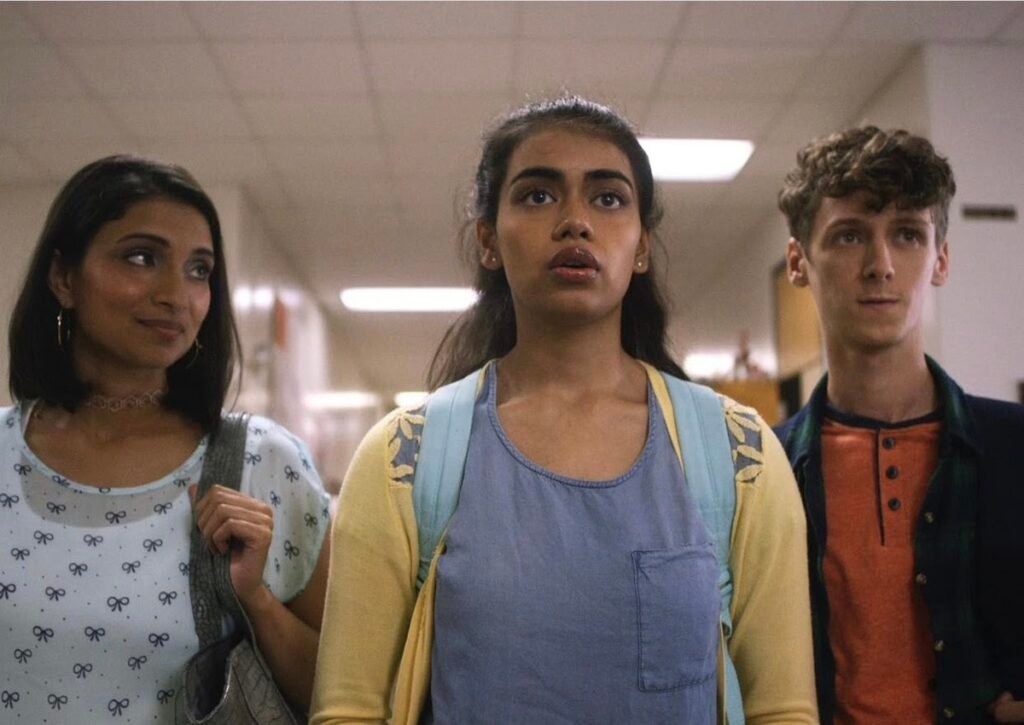
My film, The ‘MisEducation of Bindu’, had several false starts, and I nearly gave up on it. My husband came on board to produce it with me. Through some twists and turns, we were lucky to get the Duplass Brothers to come on as Executive Producers, and as they say in showbiz, the rest is history! I made my first feature with some of my closest friends from grad school, and with the support of all of our friends and family. It was truly a communal experience. That film went on to do very well and helped take my career to the next level.
Tell us more about your films. Is it easier to be accepted as a woman director out there as compared to India?
I have directed four features: ‘The MisEducation of Bindu’, starring Megan Suri, David Arquette and Priyanka Bose; ‘Fighting for Her Family’, starring Aisha Kumari and Adam Huss; ‘Christmas is Cancelled’, starring Dermot Mulroney, Hayley Orrantia and Janel Parrish. There is one more project that has not been officially announced, but I can say that it is an ensemble comedy that we just finished filming in Ireland with a fantastic cast.
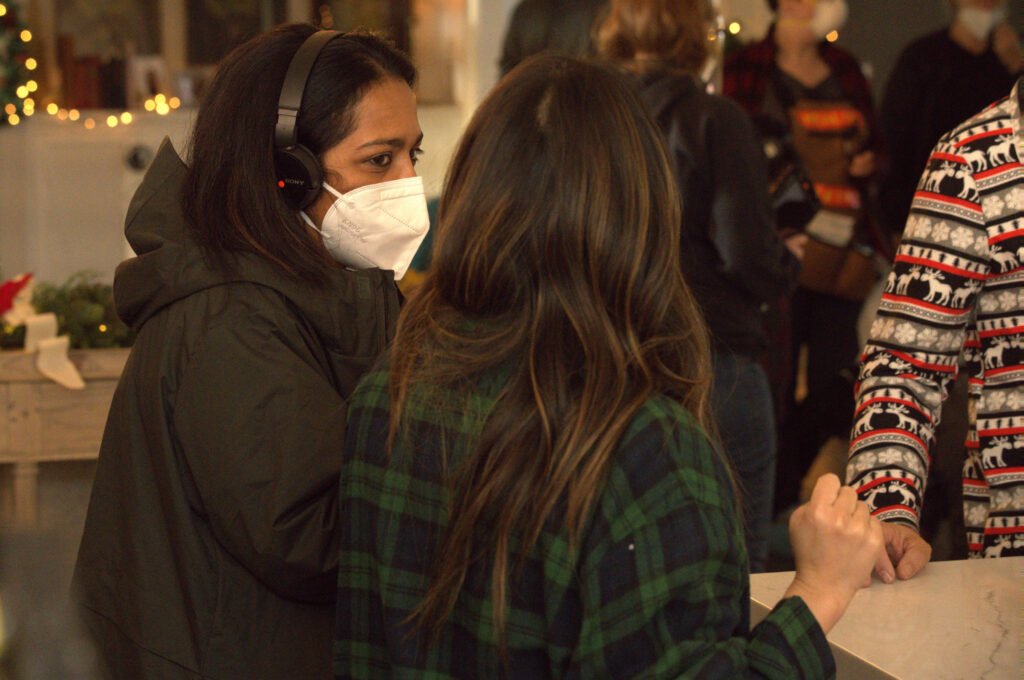
It is hard for women, I think, anywhere. I can’t speak of what it’s like in India today, but I am seeing some incredible projects created and directed by women in India, so I am hopeful that it is improving. The US has its share of women directors, but it is not nearly enough. We need more women calling the shots in all industries.
Do your Indian roots influence your approach as a director?
I think when I write, my voice is very much rooted in stories from the subcontinent and about the Indian diaspora. That is not necessarily the case for the films I have been hired to direct.
How different is filmmaking in the US compared to India? Have you introduced any elements from desi films in your projects? If given a chance what would be that one element of Bollywood/ Kollywood that you would like to integrate into your films?
I am not sure if I can accurately speak of the differences between the US and India. I have not been a part of the industry in India in a very long time. The one thing I did notice when I first came to the US, is that the film industry, more precisely a movie set, is such a well-oiled machine, where time is money, and people are hyper-focused on their jobs, departments, and there is a very clear chain of command. I found this to be an incredibly helpful way to learn because everyone on set knows how they are contributing to the whole. It’s a team, yet, there are leaders to guide the process. It is chaos, but a beautiful chaos where every day feels impossible, but it all comes together with sheer grit, sweat, and some tears.
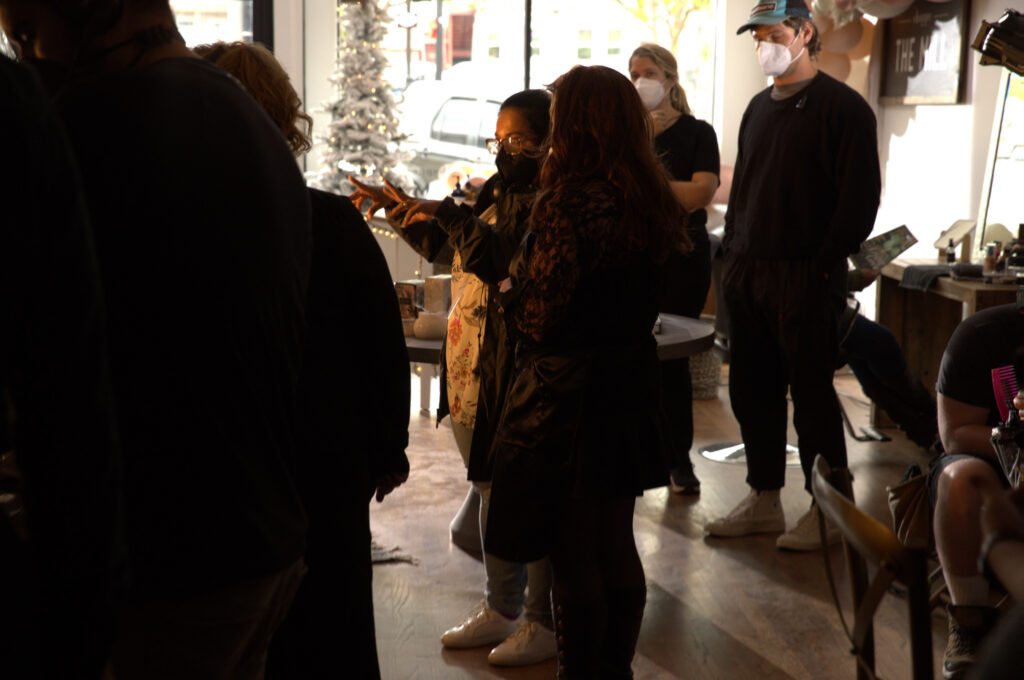
The films I have written and directed have a lot of Indian themes. I was lucky enough to be able to pay homage to my grandfather and use his song in my first film. It took a lot of people to help secure those rights for us, and I am grateful for all their support and assistance in making it happen. It will forever be so special that I was able to do that in my first movie.
Do you keep track of trends in Indian cinema? Which Indian films have you watched lately?
I am very impressed with Tamil and Malayalam cinema. I get recommendations from my family members, who tell me what to watch. Some great stuff coming out.
Tell us about your family and life in the US.
I met my husband, Edward Timpe, in grad school. He is also a filmmaker and is an extremely supportive and incredible dad. We’ve been married for 12 years and have a six-year-old. We live in California with our little dog Luna. We are lucky to have family visit us from both sides. Our parents are very supportive of our filmmaking and help out in any way they can whenever we need it.
Any plans to make films in India? Who would you like to work with?

Yes, my plan is to make a film in India; hopefully, a couple of films if all goes well. I would love to work with Naseeruddin Shah, Nandita Das, or Alia Bhatt. I thought Adarsh Gourav was fantastic in ‘The White Tiger’. Konkana Sen Sharma is a fantastic and versatile actor. India has lots of wonderful talent, and it is hard to choose.
What does the future have in store?
Keep making movies, keep telling stories. Learn more and get better at my craft. Enjoy my son; watch him grow. He’s very interested in film as well. I would love to nurture that curiosity. Be open and see where the road leads.
